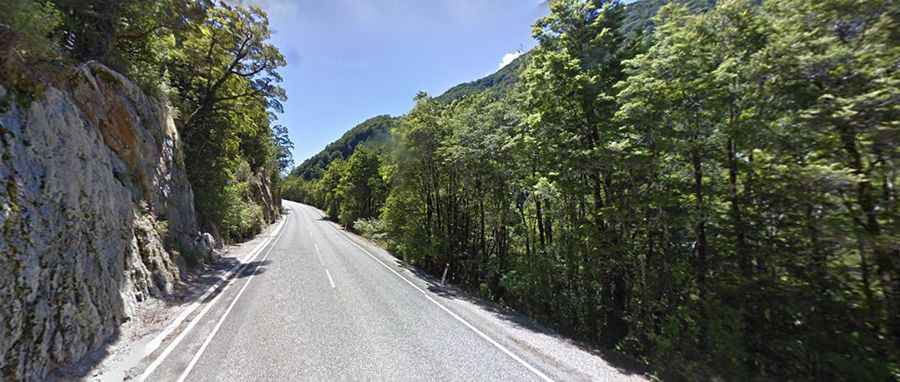Haast Pass is a beautiful alpine scenic road in NZ
Haast Pass is a mountain pass at an elevation of 569m (1,866ft) above sea level, located in the South Island of New Zealand. It’s said to be one of the most beautiful alpine scenic routes in the country.

Where is Haast Pass?
The pass is located on the boundary between the West Coast and the Otago regions.
Why is it called Haast Pass?
The pass is named for Julius von Haast, a 19th-century explorer.
When was the road to Haast Pass built?
This route was a traditional pathway for Maori journeying west in search of pounamu (greenstone or jade). Construction of a proper road began in the 1920s and 1930s depression, with unemployed workers wielding picks and shovels – but the road wasn’t completed until the early 1960s. It was actually only converted from a rough track to a formed road in 1966 and finally received a complete tarmac surface by 1995.
Is the road to Haast Pass paved?
Set high in the Southern Alps of the country, the road to the summit, also known as Tioripatea, is totally paved. It’s called State Highway 6 (Haast Pass-Makarora Road).
How long is Haast Pass?
The pass road is 139 km (86.37 miles) long, running south-north from Wanaka, a resort town on the southern end of its namesake lake to Haast, a small town. No settlements exist on the Haast Pass road between both cities.
Is Haast Pass dangerous?
It’s a difficult road, with uncountable curves and bends making passing quite difficult. The road features a few one-lane bridges along the way, with a speed limit for heavy vehicles. And there’s a slip hazard which can have terribly fatal consequences. This breathtaking journey is a must-do for every keen driver. Just be warned…. This road will test your vehicle, so make sure to take some extra supplies and a camera.
Is the road to Haast Pass open?
Located within the Mount Aspiring National Park, this road has humbled many egos. The pass may be closed occasionally after heavy snowfall, rainfall to low levels, or very icy conditions. This will normally only be for a few hours. There will be signs indicating the status before you get to the pass.
How long does it take to drive the Haast Pass?
The road is very scenic, passing through spectacular scenery. Plan 2 hours to complete the drive without any stops. The journey offers a variable landscape of rainforest, wetlands, lakes, glacier-fed rivers, and white water rapids.